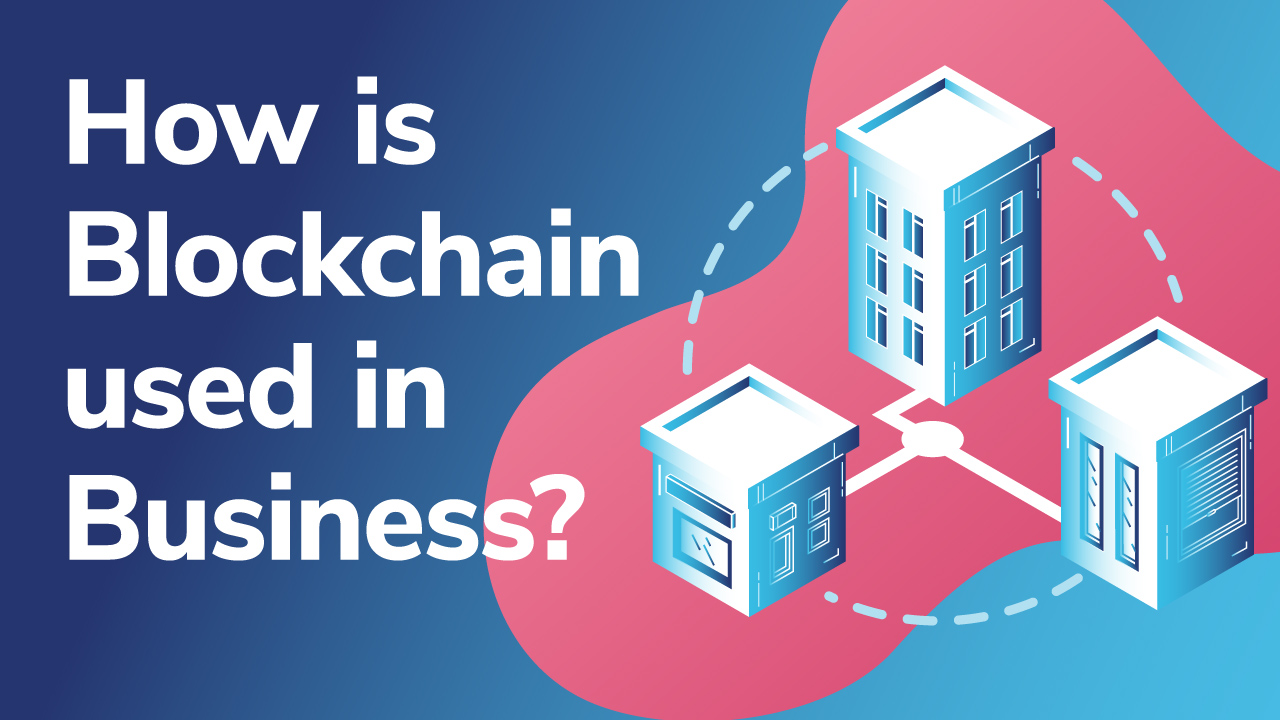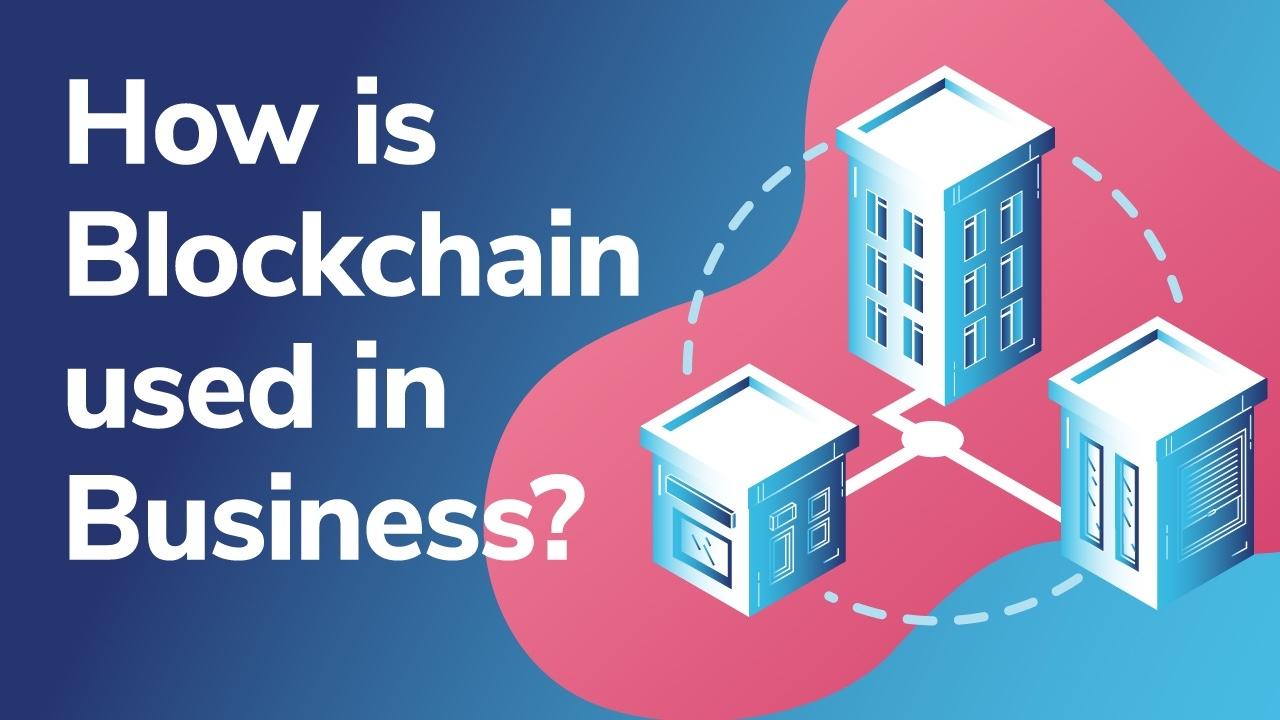
In 2020, it can seem that blockchain technology is on everyone’s lips. Specifically, blockchain is starting to break into the mainstream as countless high-profile companies are increasingly adopting blockchain. So, what is blockchain used for in business? Let’s take a closer look together at some enterprise blockchain solutions and use cases!
Blockchain technology is likely best known as the technology underpinning cryptocurrencies, altcoins, and CBDCs. Nonetheless, blockchain and distributed ledger technology (DLT) affect countless facets of society far beyond merely digital currencies.
Many also believe that decentralized finance, or DeFi, could hold the keys to banking the unbanked. Millions of people currently lack access to traditional financial services, and blockchain-driven decentralized finance could potentially solve this.
Additionally, institutional investment in Bitcoin is also surging. While the future of cryptocurrency still isn’t entirely set – although the recent Bitcoin bull market does seem promising – it is clear that blockchain technology is here to stay.
Enterprise blockchain solutions could herald a paradigm shift in how companies do business. For example, blockchain initiatives are already revolutionizing business processes, such as Baseline Protocol.
With that said, however, it is first imperative to understand what blockchain is. Ivan on Tech Academy offers countless blockchain courses and can boost your blockchain knowledge from zero pre-existing knowledge to becoming a blockchain hero.
Ivan on Tech Academy consistently produces real-life success stories, and all you have to do to join in the blockchain revolution is enroll in the Academy. Choose between basic crypto courses, Bitcoin courses, or others where you can learn about blockchain and Bitcoin, or the Academy’s Blockchain Business Masterclass.
Why Are We Seeing So Many Enterprise Blockchain Solutions?
The reason that an increasing number of high-profile companies are flocking to blockchain is relatively straightforward. You may have already read articles relating to the substantial transformational power and promise held by blockchain technology.
Specifically, some say that blockchain may finally bring about “Industry 4.0” – the fourth industrial revolution, and usher in an era of unheard of interconnectivity, transparency and trust. What’s more, it could also render middlemen, or intermediaries, unnecessary. This could create a more direct economy.

First and foremost, however, a company needs to be aware of its existing problems before successfully employing enterprise business solutions to solve them. This is why blockchain education is so crucial to know how to implement enterprise blockchain solutions properly.
Once again, we highly recommend that you should check out Ivan on Tech Academy in order to get some much-needed background on the blockchain industry and how you can understand enterprise blockchain solutions. Join over 20,000 students already enrolled, and get 20% off when using the exclusive discount code BLOG20.
Nevertheless, if appropriately implemented, enterprise blockchain solutions can undoubtedly be revolutionary for traditional processes. We already see some novel ways blockchain is changing specific sectors, such as blockchain in fashion, blockchain in the music and art industry or blockchain in healthcare, blockchain in enterprise overall is surging.
Therefore, let us move onto why we see an increasing number of enterprise blockchain solutions – and answer the question “what is blockchain used for in business”!
Benefits of Blockchain in Business
So, one of the main advantages of blockchain in business is blockchain technology’s remarkable potential for processing data in an efficient manner. As you may know, any blockchain platform can essentially be understood as merely a digital layer that structures, processes and coordinates information.
The term distributed ledger technology, or DLT, is often used when it comes to blockchains. A blockchain is practically a DLT, but it often comes with some added functionality. Moreover, seeing as it is digital, a blockchain’s distributed features, consensus mechanisms, and blockchain networks’ nature mean the information is more readily available than paper-based information.
Furthermore, the fact that a blockchain is decentralized also means it is inherently more resilient than any traditional centralized system. As such, we can conclude that blockchain technology can massively improve how companies process data in business.

What’s more, many different companies are also in need of highly secure business networks, and need to verify transactions to boost trust. This is something that fits blockchain technology like a glove. In fact, digitizing trust and validating online agreements were some of the original use cases for blockchain technology.
You may also have heard of blockchains’ immutable transaction records – meaning basically that they cannot be tampered with or altered. This means that blockchain technology is a highly secure method for confirming transactions.
Additionally, blockchain technology also allows you and your company to deploy so-called smart contracts. Smart contracts can automate various business processes, and simplify agreements and arrangements.
Lastly, blockchain technology can also be very beneficial if a company is looking to manage, issue, or create some type of digital asset. The cryptocurrency field has shown the immense interest and potential held by tokenization, and if you manage to master blockchain technology, only your fantasy sets the limits!
Enterprise Blockchain Solution 1: Maersk
So, let us take a closer look at what blockchain is used for in business, with a real-life enterprise blockchain solution. Specifically, this solution comes from the biggest shipping firm in the world, Maersk. What’s more, this blockchain enterprise solution did not just pop up now.
Rather, Maersk has been working on their blockchain efforts since early 2017. Just for reference, that is before the spectacular Bitcoin bull run seen during late 2017, demonstrating that Maersk recognized the immense potential of blockchain even before Bitcoin came into the limelight.
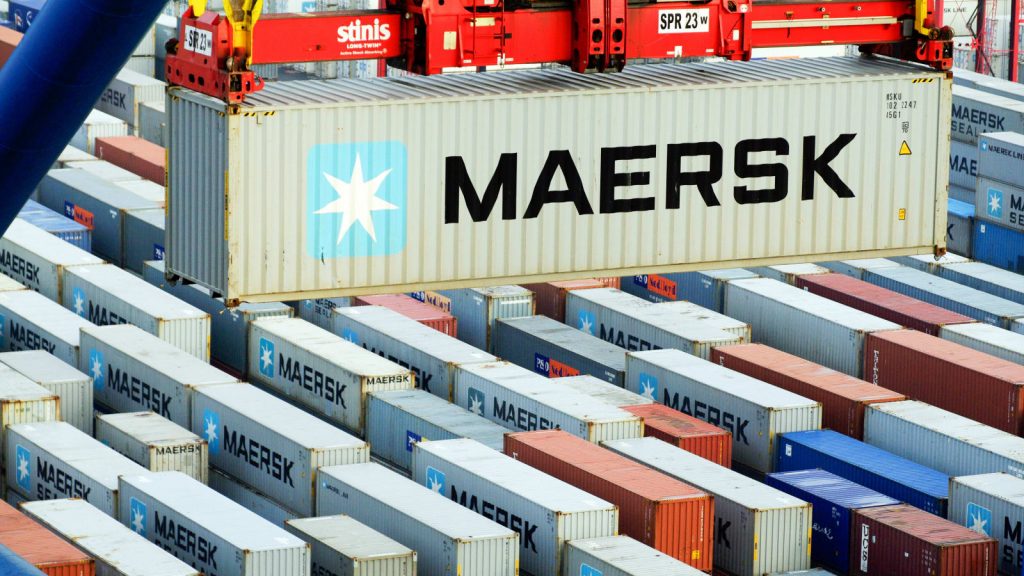
As you might assume, Maersk is looking at how the company can utilize blockchain technology in order to facilitate safer international, which are also more streamlined. For example, the company was previously looking at how a blockchain could be used in order to review cargo data remotely.
This could, in extension, dramatically speed up the processing times at customs. Shipping is currently both a time and resource-consuming process, as the average global shipment requires something like 30 people and 200 interactions to be completed. Just imagine how substantially blockchain technology could reduce this.
Nevertheless, Maersk is not content with merely confirming that blockchain technology indeed does work in the shipping industry. Instead, Maersk is continuing the development of its various blockchain applications, and they run an online IBM-Maersk blockchain platform that focuses on the global supply chain.
Moreover, the platform – which is known as TradeLens – is already involving 92 participants, 20 ports and customs authorities, and has helped streamline over 145 million different shipping events. Consequently, it seems more than clear that the blockchain has an important role to play in the shipping industry of tomorrow.
Enterprise Blockchain Solution 2: Shell and BP
Another enterprise blockchain solution comes from an industry that is not usually thought of as a very innovative one, but it is still massively important. In fact, the two oil behemoths Shell and BP are building a blockchain-driven online platform for oil trading.
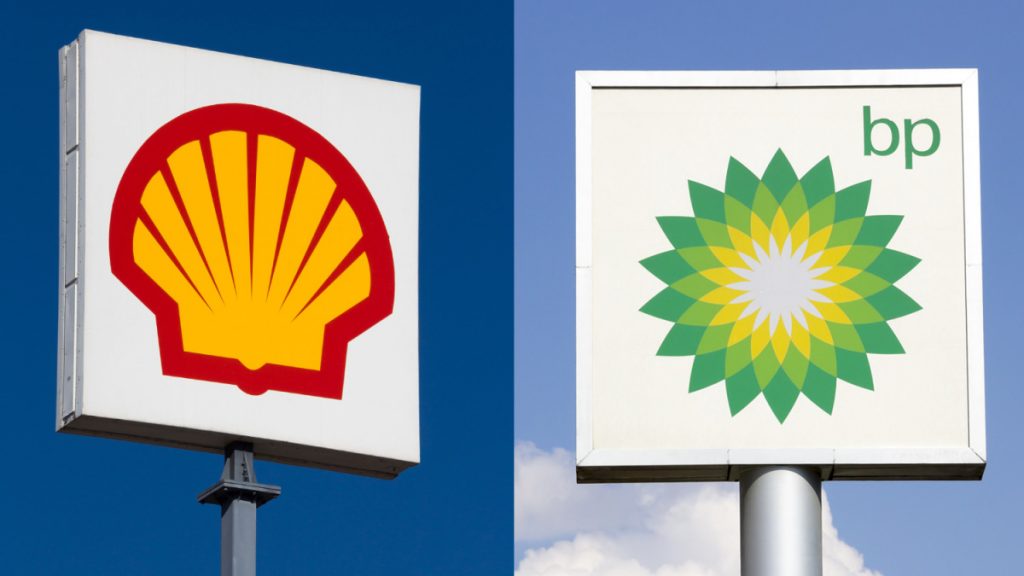
Specifically, this site will become a blockchain-based platform for trading energy commodities. In addition to BP and Shell, several other organizations are also involved in this initiative – such as banks, trading house firms, and other oil companies.
At the moment, the energy sector and energy commodities trading sector is struggling with legacy technology. For example, the traditional energy sector uses paper trading contracts, and are very documentation-intensive.
Consequently, BP and Shell both understood that the energy commodities sector was ripe for a shakeup. As such, the two oil giants will be using smart contracts in order to automate energy transactions.
The overarching aim of this enterprise blockchain solution is to lower the administrative cost and resources required for oil trading. It can actually take a very long time to trade oil today, which is why blockchain technology could massively improve it.
Additionally, trading energy becomes even more trustworthy if you use blockchain technology to do so. After all, blockchain technology makes transactions immutable, so they are impossible to change retroactively.
Enterprise Blockchain Solution 3: UPS
In addition to two massive oil giant companies and one massive shipping company, where are the other exciting enterprise blockchain solutions? Well, one company that is hoping to improve its business and efficiently using blockchain technology is UPS.
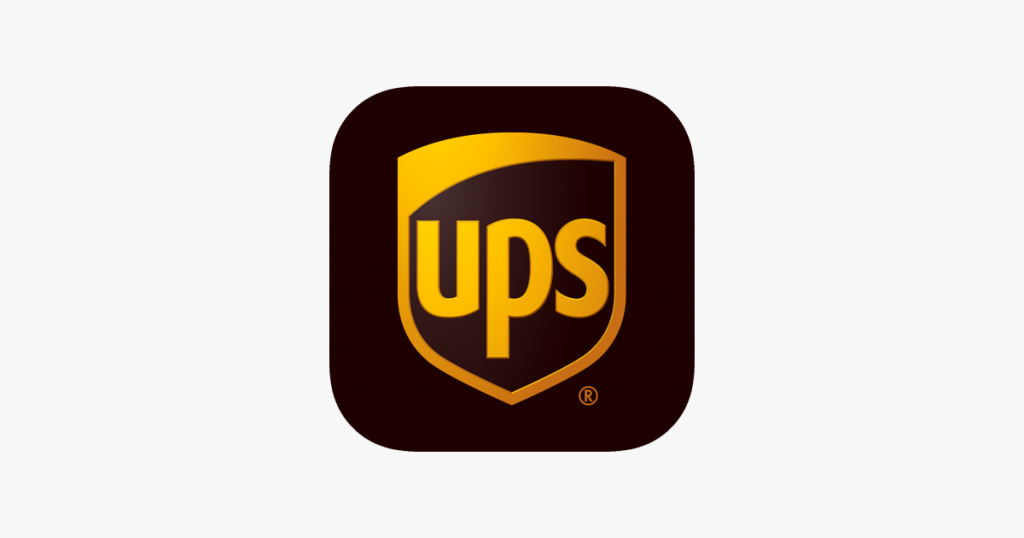
You may think that UPS is a seemingly mundane example, as it is also a shipping company, much like Maersk. However, the logistics and shipping industry is massive, and bringing up the example of UPS shows just how important blockchain technology can be to shipping,
UPS has been filing for various blockchain patents, including seeking to introduce blockchain standards for the freight industry, and filing for a patent for using blockchain technology to trace and track packages all around the world.
All of this comes as part of the push toward developing what is commonly known as a “smart” global logistics network. This could prove essential in Industry 4.0, as well as reduce unnecessarily long shipping times.
One of the ways in which UPS is hoping to boost the shipping industry’s efficiency using blockchain is simply by making it more transparent and trusted. Through shipping with immutable blockchain records, which are both traceable and verifiable, global shipping could become both safer and quicker.
What’s more, UPS is also looking into a decentralized system that sends packages through different service providers anonymously, and settles the transactions between the involved parties instantly. Although this could naturally prove cumbersome, it could also be a very real solution to boosting privacy when receiving packages.
Enterprise Blockchain Solution 4: Walmart
The last example of what blockchain is used for in business is a recent initiative from Walmart. Although Walmart is known for experimenting with the latest technologies and trends, this is still a massive Walmart and blockchain project.
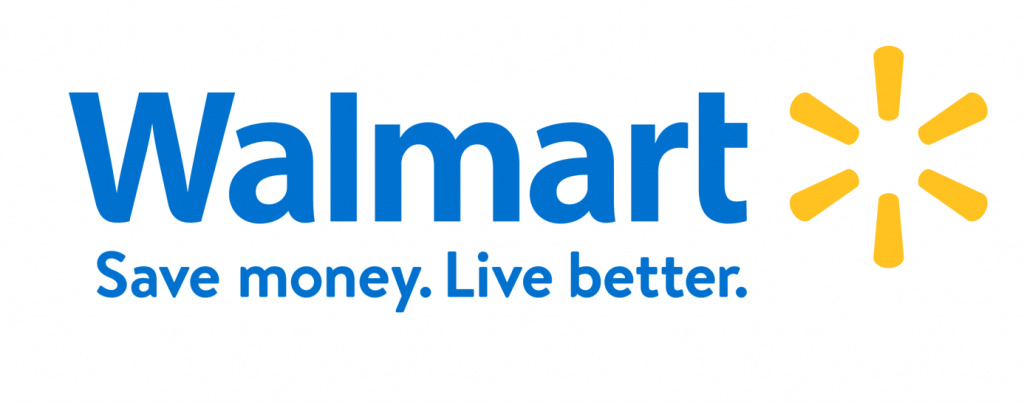
In fact, Walmart is looking to use blockchain technology in order to track and trace its various products all the way from their farm to plate. If implemented correctly, this would likely allow someone just to scan a product with their phone and see how it got from its farm to you.
Moreover, this could naturally also significantly increase the precision with which stores can withdraw certain products. For example, imagine a situation in which food poisoning could be practically eliminated using DLT. In doing so, Walmart could boost transparency massively and help cut down on waste.
Just like UPS could allow normal people to create a much-improved logistics network with modern solutions, so could Walmart’s “farm to plate” blockchain tracking. It could also indirectly help improve animals’ wellbeing, seeing as their origins would be easier to track.
Conclusion – What Is Blockchain Used For in Business
As such, it is clear that blockchain technology has a long number of different potential applications within the business field. The growing number of enterprise blockchain solutions will likely keep increasing.
Additionally, people’s curiosity and the ways in which they use blockchain will likely keep increasing as people learn more about blockchain technology. Consequently, businesses will likely come up with new blockchain use cases in just a few years that we would never be able to predict today.
Furthermore, it is worth highlighting that the enterprise blockchain solutions brought up in this article as just a few potential use cases for blockchain. After all, blockchain technology could be used in almost any field – as long as you know how to use it.
Again, this is why blockchain education is so important. Enroll in Ivan on Tech Academy today if you need more background on what blockchain is or what to do with it. Some observers suggest that blockchain technology adoption might have as big an impact as the invention of the internet.
Imagine if you were sitting with the tools for learning all about the internet back in the 1980s or early 1990s. Then you could perhaps have created Google, Facebook or Google Chrome. Be sure to join the blockchain revolution today and get in at the start of an era!
